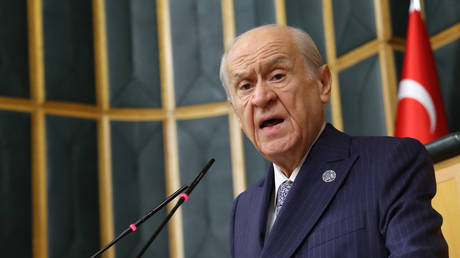From NATO’s flank to Eurasia’s core: Türkiye’s break with the West begins
NegativeWorld Affairs

Türkiye's recent call for an alliance with Russia and China signals a significant ideological shift in Turkish nationalism, moving away from its traditional alignment with NATO. This change is noteworthy as it reflects a deeper transformation in Türkiye's foreign policy and could have far-reaching implications for global geopolitics, especially in the context of rising tensions between Western powers and Eastern alliances.
— via World Pulse Now AI Editorial System